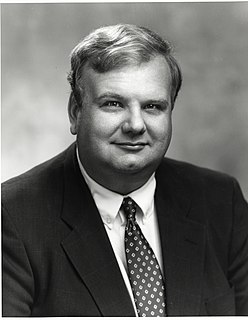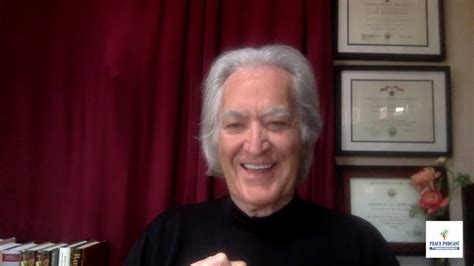A Quote by Gerald Epstein
Initially, QE contributed to a pretty significant increase in inequality. It raised asset prices, which are owned primarily by the wealthy, while having relatively small if any positive impacts on bank lending, employment, wages or economic growth, so ordinary people haven't had much help. By the third round of QE in 2012-2014, the effects had likely muted quite a bit. There were probably not big impacts on asset prices from QE and the positive effects on employment growth might have strengthened somewhat.
Quote Topics
Any
Asset
Bank
Big
Big Impact
Bit
Economic
Economic Growth
Effects
Employment
Growth
Had
Having
Help
Impacts
Increase
Inequality
Initially
Lending
Likely
Might
Much
Muted
Ordinary
Ordinary People
Owned
People
Positive
Positive Impact
Pretty
Prices
Primarily
Quite
Quite A Bit
Raised
Relatively
Round
Significant
Small
Somewhat
Third
Wages
Wealthy
Were
Which
While
Related Quotes
The impact of QE on generating more lending by Wall Street to Main Street and in generating more employment and increasing overall investment in the economy is quite modest. QE probably limited the initial collapse of the economy in 2008, and likely had a very small positive impact on economic growth, but its broader impact on jobs and growth in the economy seems not very big.
There's no denying that a collapse in stock prices today would pose serious macroeconomic challenges for the United States. Consumer spending would slow, and the U.S. economy would become less of a magnet for foreign investors. Economic growth, which in any case has recently been at unsustainable levels, would decline somewhat. History proves, however, that a smart central bank can protect the economy and the financial sector from the nastier side effects of a stock market collapse.
There is no doubt that the Fed's large-scale asset purchases have caused major increases in a number of asset prices in the economy. This is especially true of mortgage backed securities and corporate bonds, and quite possibly of equities as well. For those people and institutions holding those things, the run up in prices has been a wealth bonanza.
The recent trading environment has felt something like walking into a place and having a sense that something is wrong and dangerous but not knowing exactly what will happen or when. “QE Infinity” has so distorted the prices of stocks and bonds that nobody can possibly determine what the investing landscape would look like, or what the condition of the economy and financial system would be, in the absence of Fed bond-buying.
In truth, the gold standard is already a barbarous relic. All of us, from the Governor of the Bank of England downwards, are now primarily interested in preserving the stability of business, prices, and employment, and are not likely, when the choice is forced on us, deliberately to sacrifice these to outworn dogma, which had its value once, of 3 pounds, 17 shill ings, 10 1/2 pence per ounce. Advocates of the ancient standard do not observe how remote it now is from the spirit and the requirements of the age. A regulated nonmetallic standard has slipped in unnoticed. It exists.
Eventually it became clear that our emotions, attitudes, and thoughts profoundly affect our bodies, sometimes to the degree of life or death. Soon mind-body effects were recognized to have positive as well as negative impacts on the body. This realization came largely from research on the placebo effect—the beneficial results of suggestion, expectation, and positive thinking.






























